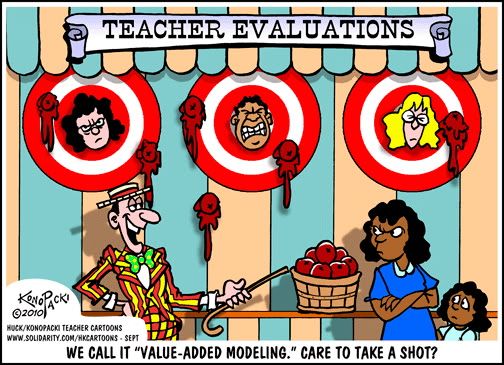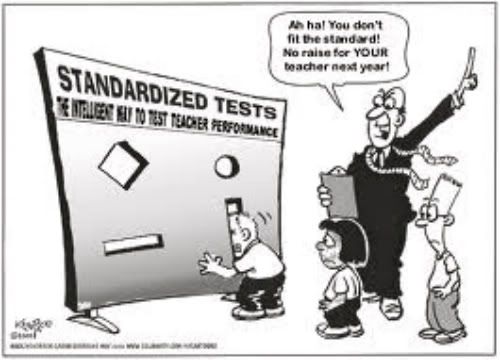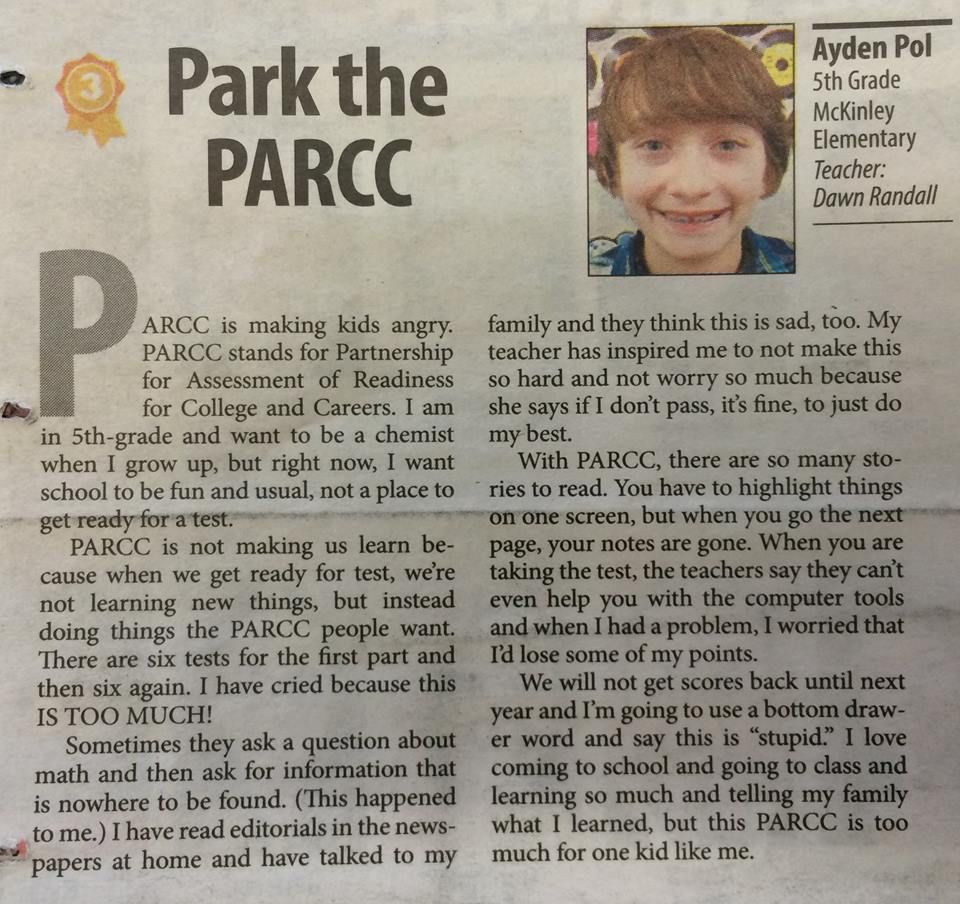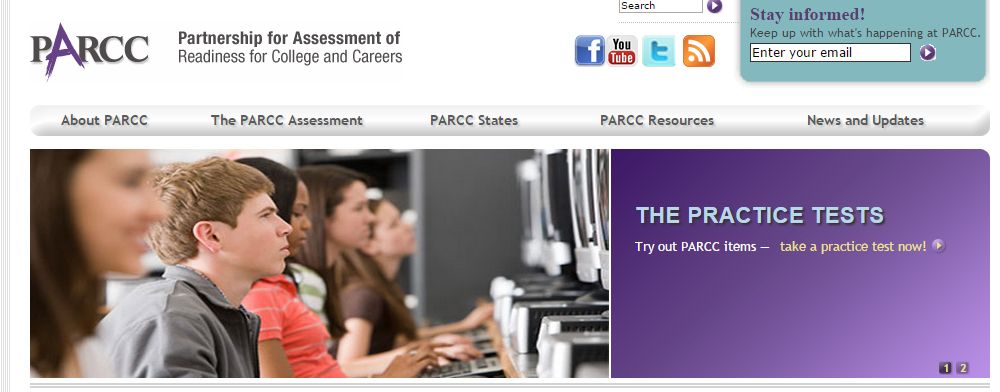That is a lot of power given without much scrutiny...to those who formulate and grade the tests that judge so many. One of the biggest of these is Pearson, and they greatly affect many states.
Recently in the New York Times Michael Winerip told of some investigations being done about educators being treated to trips paid for by Pearson Foundation, one of the largest publishers of educational materials. That includes testing packages sold to schools and the grading of the tests as well.
New Questions About Trips Sponsored by Education Publisher
In the summer of 2010, Lu Young, the superintendent of schools in Jessamine County, a Lexington, Ky., suburb, took a trip to Australia paid for by the Pearson Foundation, a nonprofit arm of Pearson, the nation’s largest educational publisher.
Ten school superintendents went on the trip.
More:
Six months later, in Frankfort, Ky., Ms. Young sat on a committee interviewing executives from three companies bidding to run the state’s testing program. While CTB/McGraw-Hill submitted the lowest bid, by $2.5 million, Ms. Young and the other committee members recommended Pearson...."For several weeks, New York State’s attorney general has been investigating similar trips involving two dozen education officials from around the country who traveled to Singapore; London; Helsinki, Finland; China and Rio de Janeiro as guests of the Pearson Foundation. The trips, and the fact that most of these officials come from states that have multimillion contracts with Pearson, were the subject of two of my columns this fall.
Last month, the attorney general, Eric T. Schneiderman, issued subpoenas to the Manhattan offices of the Pearson Foundation and Pearson Education. Mr. Schneiderman is looking into whether the nonprofit, tax-exempt foundation, which is prohibited by state law from undisclosed lobbying, was used to benefit Pearson Education, a profit-making company that publishes standardized tests, curriculums and textbooks, according to people familiar with the inquiry.
Pearson has a lot of influence in states like Texas and Florida. Here is more about Texas from the Texas Observor last September.
How private companies are profiting from Texas public schools.
Pearson, one of the giants of the for-profit industry that looms over public education, produces just about every product a student, teacher or school administrator in Texas might need. From textbooks to data management, professional development programs to testing systems, Pearson has it all—and all of it has a price. For statewide testing in Texas alone, the company holds a five-year contract worth nearly $500 million to create and administer exams. If students should fail those tests, Pearson offers a series of remedial-learning products to help them pass. Meanwhile, kids are likely to use textbooks from Pearson-owned publishing houses like Prentice Hall and Pearson Longman. Students who want to take virtual classes may well find themselves in a course subcontracted to Pearson. And if the student drops out, Pearson partners with the American Council on Education to offer the GED exam for a profit.“Pearson basically becomes a complete service provider to the education system,” says David Anderson, an Austin education lobbyist whose clients include some of Pearson’s competitors.
With the prevalence of companies like Pearson operating in Texas and many other states, the U.S. education system has become increasingly privatized. In some cases, the only part of education that remains public is the school itself. Nearly every other aspect of educating children—exams, textbooks, online classes, even teacher certification—is now provided by for-profit companies.
Here is the webpage for their North America education interests. Just add the name Pearson in front of the publishing companies you used to know. Almost every textbook we used in the classroom came from one of these companies, but now there is the word Pearson preceding it.
Pearson North American Education
Pearson has the FCAT testing contract for Florida. That is the test that has decided most everything in Florida, though I hope some of that is changing.
From the Orlando Sentinel in December. There is concern about the investigations going on elsewhere, concern that Florida might be linked to some of it.
NY investigating Pearson, testing giant with FCAT contract
New York’s attorney general is looking into whether an educational foundation affiliated with Pearson — the national testing giant that has the FCAT contract — tried to improperly influence state educators by paying for them to take overseas trips, the New York Times reported yesterday.The paper wrote: ”The office of the attorney general, Eric T. Schneiderman, issued subpoenas this week to the foundation and to Pearson Education seeking documents and information related to their activities with state education officials, including at least four education conferences — in London, Helsinki, Singapore and Rio de Janeiro — since 2008, according to people familiar with the investigation.
At issue is whether the activities of the tax-exempt Pearson Foundation, which is prohibited by state law from engaging in undisclosed lobbying, were used to benefit Pearson Education, a for-profit company, according to these people.”
Former Florida Education Commissioner Eric Smith took a Pearson trip to Finland in 2009, though that was after the company won Florida’s contract. Pearson was one of three companies to initially apply to run Florida’s testing program but one of the applicants was deemed unqualified. A committee of state officials (Smith was not among them) and a few outside appointees (including a parent) selected Pearson over CTB/McGraw-Hill after rating the two proposals.
Pearson was fined about 15 million in 2010 for late scores on the FCAT.
Florida hits FCAT contractor Pearson with another $12 million in penalties
Education Commissioner Eric J. Smith told Pearson he expects the damages to be paid by Aug. 6."Pearson's usage of unproven technology systems this year has caused great turmoil for our parents, teachers, administrators and other education stakeholders and I remain committed to holding the company fully accountable for these disruptions," Smith said in a written statement.
"It is our intent to make good on our previously stated commitment to reimburse the department and Florida districts for substantiated, unexpected costs due to the delay in reporting FCAT scores," Pearson spokesman Adam Gaber said in response.
Teachers in public schools are held accountable. The companies that make the tests that are used to judge them should be held equally accountable.
There are two more paragraphs from the Texas Observer, in which a lobbyist warns of the educational industrial complex.
Lobbyist David Anderson remains worried. “Ultimately in public education,” he says, “when you have something as significant as the education of the child or of a generation of children, you want to make sure that, to the greatest extent possible, decisions are being made based on reliable and valid information, and decisions are being made for the right reasons.”He says students and parents must now contend with a business-education complex in which industries perpetuate ideologies, and ideologies keep industries afloat.Anderson compares it to the military-industrial complex that President Dwight Eisenhower warned of. Which makes sense, since Pearsonville does have a 1950s feel.
Here is the Pearsonville site.
Accountability should not just be for teachers.
















